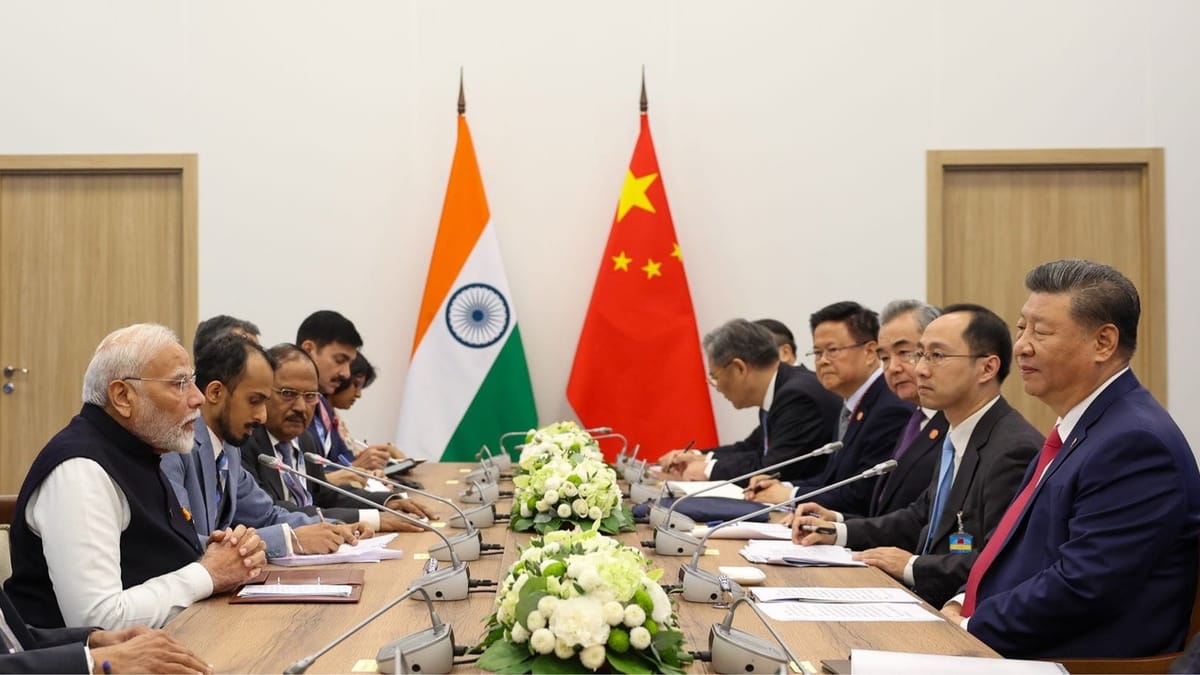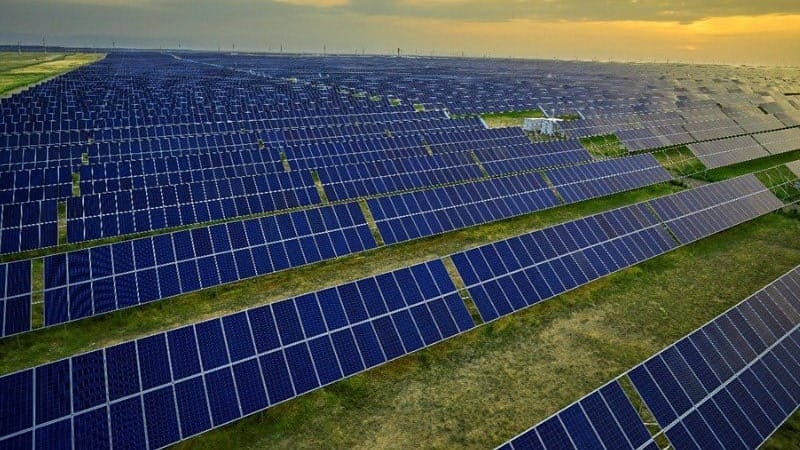
ModiWatch: Prime Minister Narendra Modi at the BRICS Summit in Kazan, urged for global governance reforms, counter-terrorism efforts, and prioritising the Global South, while highlighting India’s green initiatives and economic agenda.
At the BRICS Summit, PM Modi and China's President Xi Jinping welcomed progress on India-China border disengagement and agreed to resume high-level talks to manage peace and pursue a long-term boundary solution.
PM Modi met with Uzbekistan's President Shavkat Mirziyoyev and UAE's President Sheikh Mohamed bin Zayed Al Nahyan on the BRICS Summit sidelines, discussing trade, health, and digital cooperation.
At the BRICS Summit, PM Modi called for increased financial integration among member countries through local currency trade, citing India's Unified Payments Interface (UPI) as a successful model.
BRICS leaders discuss expansion
BRICS leaders convene amid Ukraine conflict and expansion talks: During the BRICS Summit in Kazan, PM Modi and Chinese President Xi Jinping addressed the Ukraine conflict with Russian President Vladimir Putin. Additionally, Putin noted interest from over 30 nations in joining the bloc.
BRICS Summit endorses UN reform and financial cooperation: The BRICS Summit adopted the Kazan Declaration, supporting member nations' bids for permanent UN Security Council seats and promoting payment settlements in national currencies, while addressing climate change as a priority.
Sanchez's India visit to spotlight aircraft plant and bilateral deals: Spanish Prime Minister Pedro Sanchez will visit India from October 27-29 to hold talks with PM Modi, inaugurate a C295 aircraft assembly plant in Vadodara, and sign agreements aimed at expanding bilateral cooperation across sectors.
Germany fast-tracks defence deals with India ahead of submarine decision: Germany has granted India special status to expedite military procurement approvals, with the P-75I submarine deal, valued at over $5.2 billion, set to be a topic during German Chancellor Olaf Scholz's visit.
IMF forecasts 7% growth for India
IMF sees India leading global growth despite challenges: India's economy is projected to grow by 7% in FY 2024-25, driven by rural consumption recovery, with inflation expected to ease to 4.4%. Reforms in labour, trade, and infrastructure are needed to sustain momentum amidst lingering bureaucratic hurdles.
India to maintain investment restrictions: Finance Minister Nirmala Sitharaman announced that investment curbs on bordering nations will remain in place, despite a recent agreement with China aimed at easing tensions, as concerns over foreign direct investment (FDI) origin persist.
Finance Ministry to review windfall tax on crude oil: Finance Ministry will evaluate the potential scrapping of the windfall tax-* on local crude oil production, as global oil prices have sharply declined since the tax's introduction in 2022, according to Tarun Kapoor, advisor to the Prime Minister of India.
RBI holds rates as inflation concerns persist: The Reserve Bank of India's Monetary Policy Committee held the policy rate at 6.50%, with Governor Shaktikanta Das prioritising price stability, while external member Nagesh Kumar advocated a 0.25% cut to spur demand, citing risks of currency appreciation and weak industrial growth.
India's net FDI doubles: India's net foreign direct investment (FDI) more than doubled to $6.62 billion during April–August 2024, with $36.1 billion in gross inflows, mainly into manufacturing, financial services, and energy.
India scraps export tax on parboiled rice: India has removed the export tax on parboiled rice and husked brown rice, aiming to increase shipments after a bumper harvest, following last month’s reduction in duty to 10% from 20%.
Supreme Court rulings
Supreme Court slams Centre for failing to enforce anti-pollution law: The Supreme Court criticised the Indian government for not enforcing the Commission for Air Quality Management (CAQM) Act's stubble burning penalties, despite over 1,000 cases in Punjab, and demanded stricter implementation within 10 days.
States win Supreme Court battle to regulate industrial alcohol: The Supreme Court, in an 8:1 decision, upheld the States' authority to regulate industrial alcohol, dismissing the Centre’s claim of exclusive control under the Industries (Development and Regulation) Act, 1951.
India's economic growth
Digital push powers India's economic growth: Finance Minister Nirmala Sitharaman credited India’s economic growth to free digital access and widespread adoption of Digital Public Infrastructure (DPI), positioning India as a global digital leader.
AI set to transform India's energy sector: Minister of Petroleum and Natural Gas Hardeep Singh Puri highlighted the role of artificial intelligence (AI) in revolutionising India's energy landscape, citing its potential to optimise operations and improve customer experiences as public sector undertakings invest in AI technologies for safety and efficiency.
Thermo Fisher Scientific to set up bioprocess design centre in Hyderabad: Boston-based Thermo Fisher Scientific is set to open a 10,000 sq ft Bioprocess Design Centre (BDC) in Genome Valley, Hyderabad, following an MoU with the Telangana government, aiming to support the local pharmaceutical and life sciences sectors, which account for 33% of India’s pharma exports.
India faces $14.4 billion cyber fraud risk: India is projected to lose ₹1.2 lakh crore ($14.4 billion) to cyber fraud over the next year, with the Indian Cyber Crime Coordination Centre (I4C) citing mule accounts as enablers of scams that threaten 0.7% of the nation's GDP, primarily originating from Chinese entities.
India eyes 500 GW renewables by 2030
India set to surpass 500 GW renewable energy target by 2030: Ministry of New and Renewable Energy (MNRE) is confident of exceeding its 500 GW renewable energy capacity target by 2030, including 100 GW of wind energy, despite challenges in land acquisition; the country has already reached 210 GW and plans to install 4.5-5 GW in 2024.
In-Depth:
 Delhi BriefingAmal Anzari
Delhi BriefingAmal Anzari
NMDC raises iron ore prices: State-owned miner National Mineral Development Corporation (NMDC) has increased iron ore prices by ₹600 ($7.22) per tonne for lump ore to ₹6,350 ($76.56) and by ₹400 ($4.83) for fines to ₹5,410 ($65.38), effective Wednesday, marking the second price rise since October 1.
Sugar mills push for ethanol price hike: The Indian Sugar and Bio Energy Manufacturers Association (ISMA) is urging the government to increase ethanol prices for oil marketing companies, citing a two-year freeze despite rising sugarcane prices and input costs.
Delhi Today: Hazy.
Delhi's air quality remains very poor: Delhi's air quality remained ‘very poor’ with an Air Quality Index (AQI) of 363 on Wednesday, as smog enveloped the city and some areas entered the ‘severe’ category.

